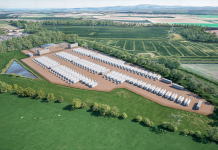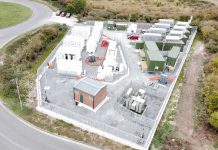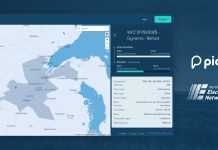
In attempting to create flexibility markets, distribution network operators are doing what is in their power, says Graham Oakes, former chief scientist and co-founder at Upside Energy, now an independent consultant engaged in local authority flexibility projects.
But the value on offer is too little and too short term to attract much interest, he suggests. Oakes believes Ofgem could change all of that if it committed to enabling flexibility within its network charging and access reviews.
Opportunity costed
“If you look at the total UK electricity market, consumers pay about £30bn-£35bn per annum spread across businesses and households. About 40 per cent of that is energy costs, about 25 per cent network costs. About 5 per cent is balancing and capacity market costs and the rest is basically tax,” says Oakes.
“You can’t do much about the taxes, but with a good strategy, you can cut your energy costs by about a third. So 10-12 per cent off your total bill by shifting demand out of peak times,” he suggests.
“If you increase utilisation on the network, you could in theory take another third off network costs. But that ability to do that is not there yet – and the key aspect is the charging reviews.”
Oakes believes if Ofgem develops “the right models” with interruptible timed access connections and shared and traded network access, “that £7.5bn of network costs potentially opens up a couple of billion pounds of value in reducing connection costs.”
Because much of the network costs are ‘sunk’, that value does not immediately become apparent, admits Oakes.
“But to hit Net Zero targets, we need to electrify transport and heat. Therefore we will need at least double the amount of power down the wires. That means we have a massive reinforcement problem – and that £7.5bn of network costs becomes £15bn.”
A significant chunk of that cost could be avoided by increased network utilisation, suggests Oakes. “That is the real opportunity [for DNO/DSO flexibility].”
Think bigger
The scale of that opportunity – or cost – means Ofgem’s review into forward looking and access charges (the SCR) is crucial in scaling up DNO flexibility, says Oakes.
“The DNOs are trying to move in the right direction. They are starting small and attempting to ramp up – and that is currently the only viable route forward for them. But it limits them to very location-specific opportunities and there is not enough of a market there for people to invest, so it is chicken and egg,” says Oakes.
“They are providing short-term optionality, paying decent rates per megawatt per hour, but they are not buying many hours. From an investment perspective, it’s icing on the cake, but nobody is going to invest in a battery for that opportunity.”
SCR key to flex
Oakes says the SCR is key to providing a long-term price signal that will spur investment.
“The long run marginal pricing of network capacity is what gives you a long-term pricing signal – and then you have the shorter price signal [from DNOs and other flexibility buyers] on which to tune your position.”
He says that in a “well developed market” there would be similar signals, “so what is Ofgem’s appetite to develop that market?”
Oakes believes Ofgem could make “a huge difference by coming out and stating ‘we believe in giving a clear pricing signal for flexibility’. That would enable people to prepare their business models for when the market opens up in three or four years [at the start of the next price control].
“But because Ofgem doesn’t have any remit for carbon targets, it can’t do that. So that is the place for policy to step in – and it needs to.”
Given the increase in power demand from heat and transport, there is no escaping the need for significant network reinforcement, says Oakes. But optimising the balance between reinforcement and flexibility through tradable capacity and access “dramatically improves the investment case for low carbon technologies behind the meter”, he says.
“So from a wider system perspective, it becomes a much more attractive route to take”.
Graham Oakes is one of the speakers at The Energyst’s DSR Event, 11 September, London. Details here.
Related stories:
Beis and Ofgem tell networks to expedite flex
Charging reviews: industry groups urge government intervention
Charging regime change ‘could take £15/MWh from renewable generators’
Constraint trading, grid access and triad: Ofgem scopes major charging review
Ofgem paves way for major change to energy system charges
Net zero: Let DNOs install fatter wires to handle EVs and electric heat
All DNOs commit to considering flexibility over network reinforcement
Upside Energy: Small scale DSR is actually easier than large
Artificial Intelligence for smart grids: can UK start-up beat Google?
Follow us at @EnergystMedia. For regular bulletins, sign up for the free newsletter.



